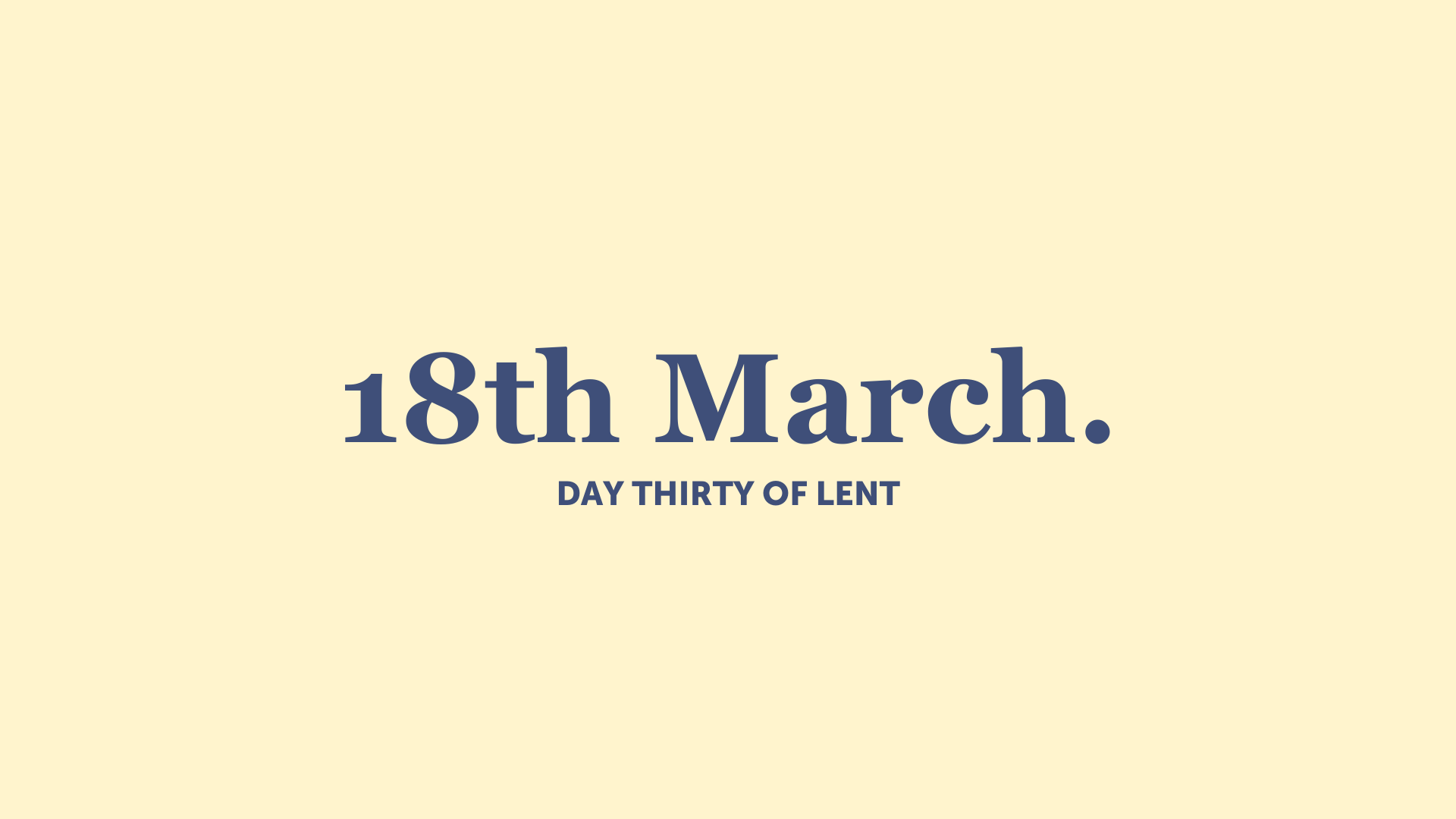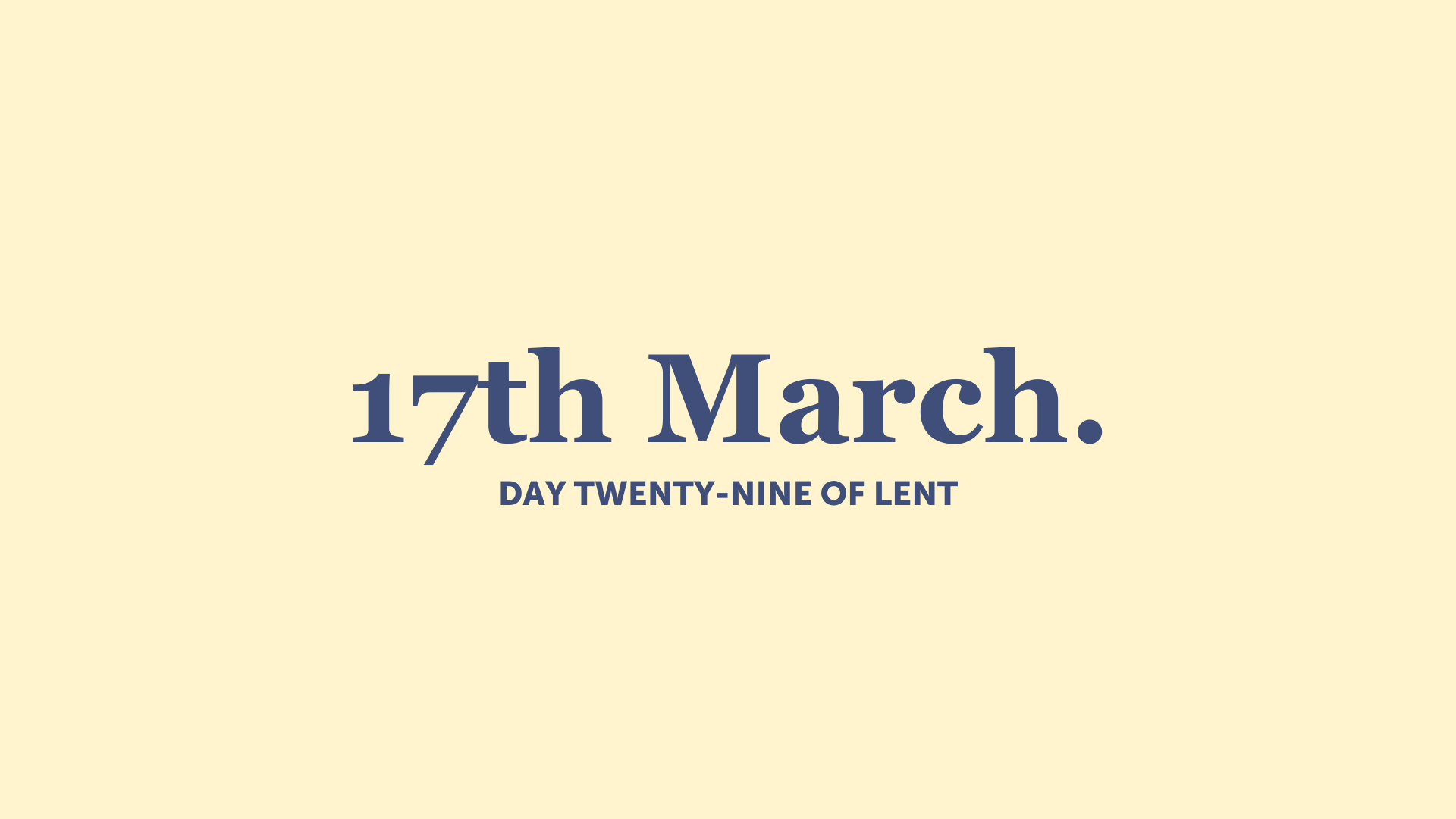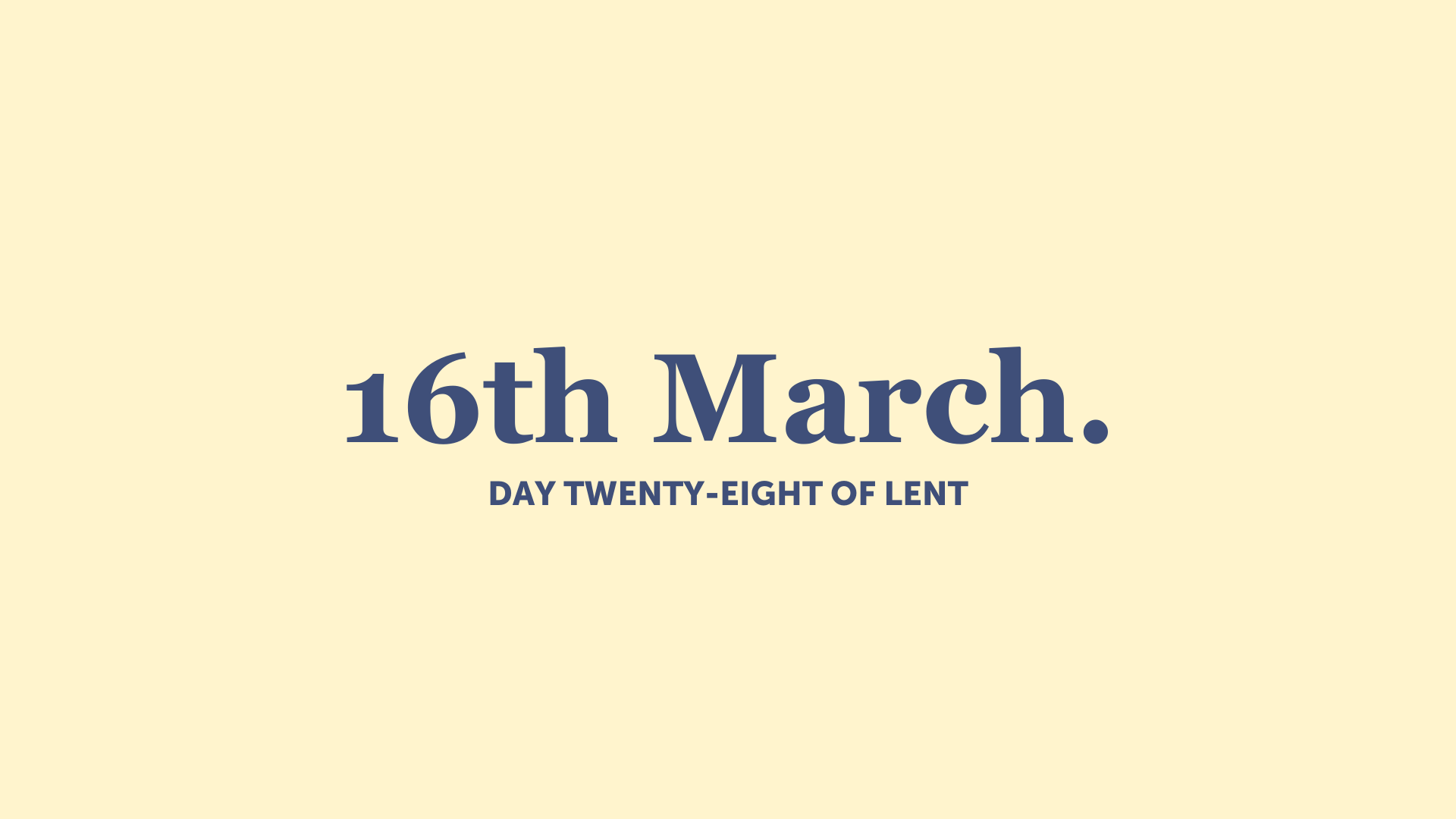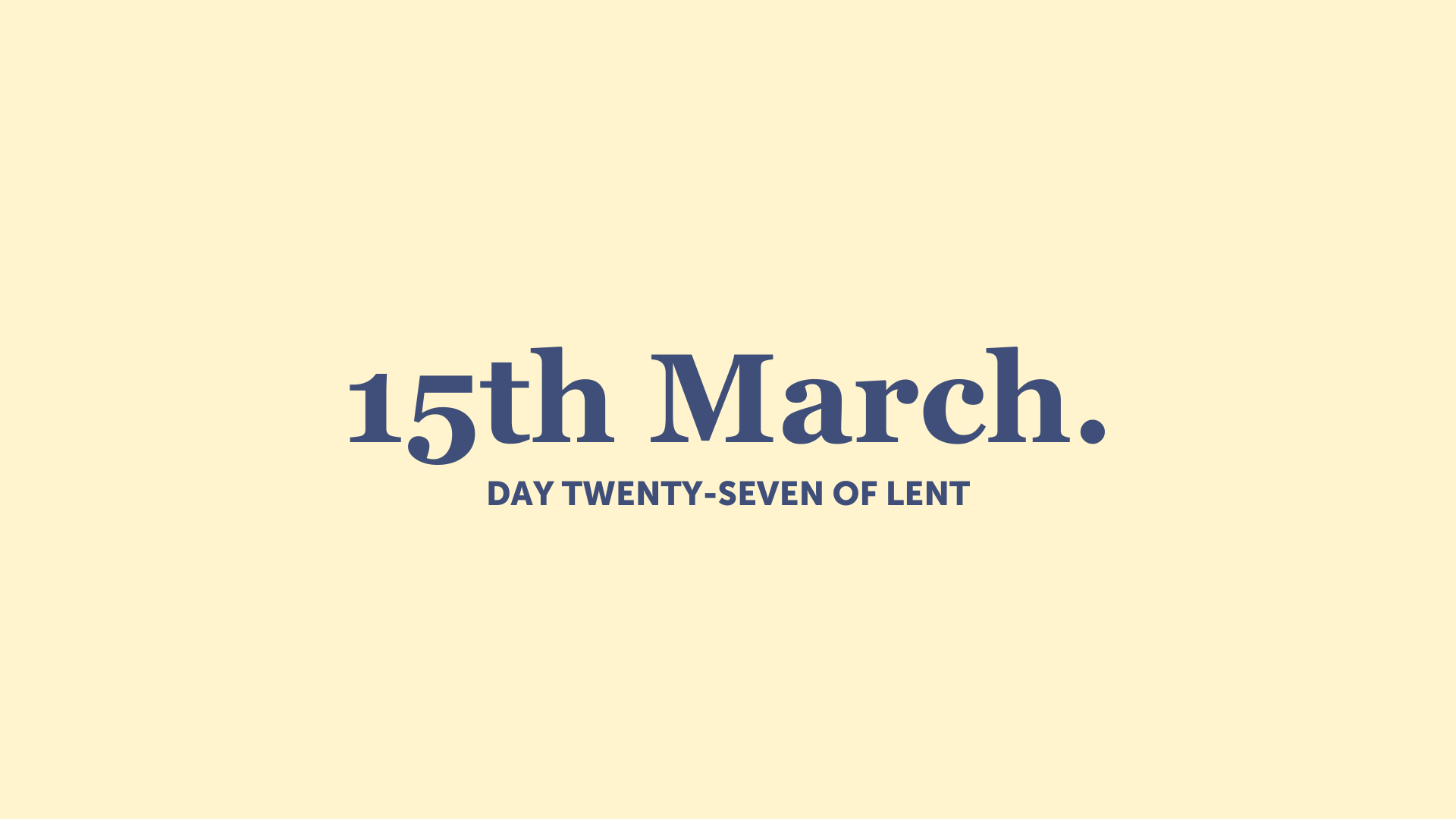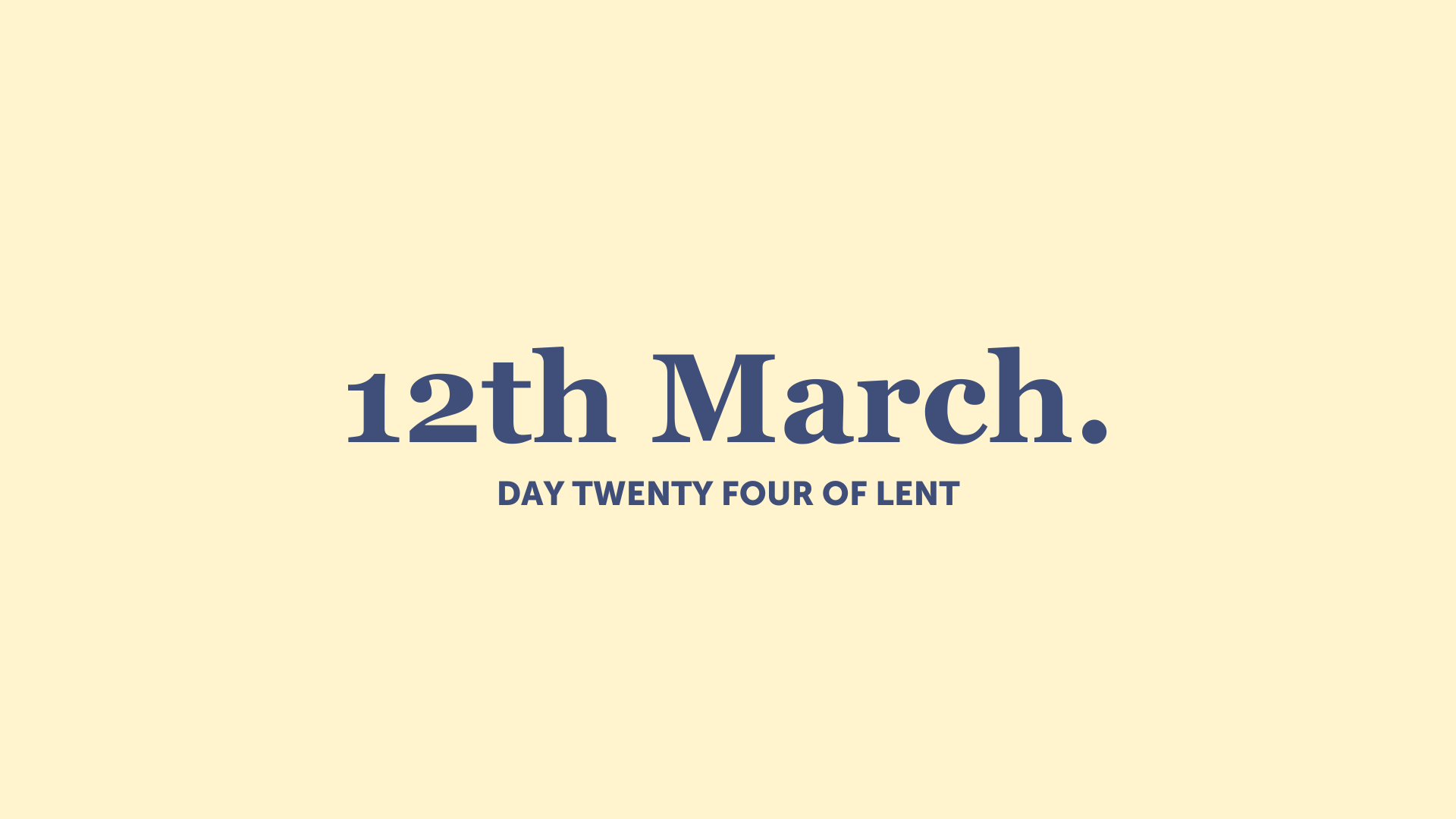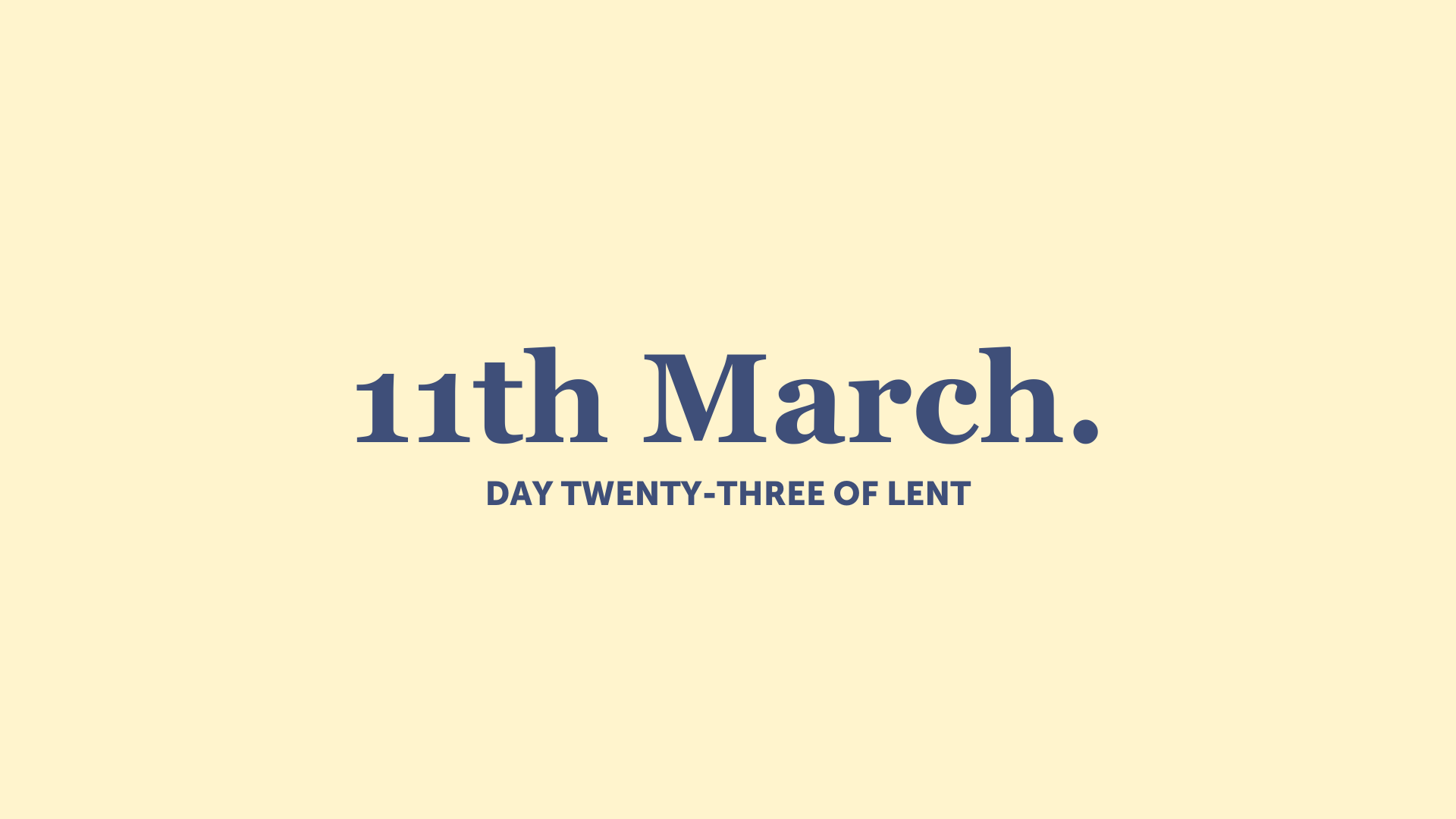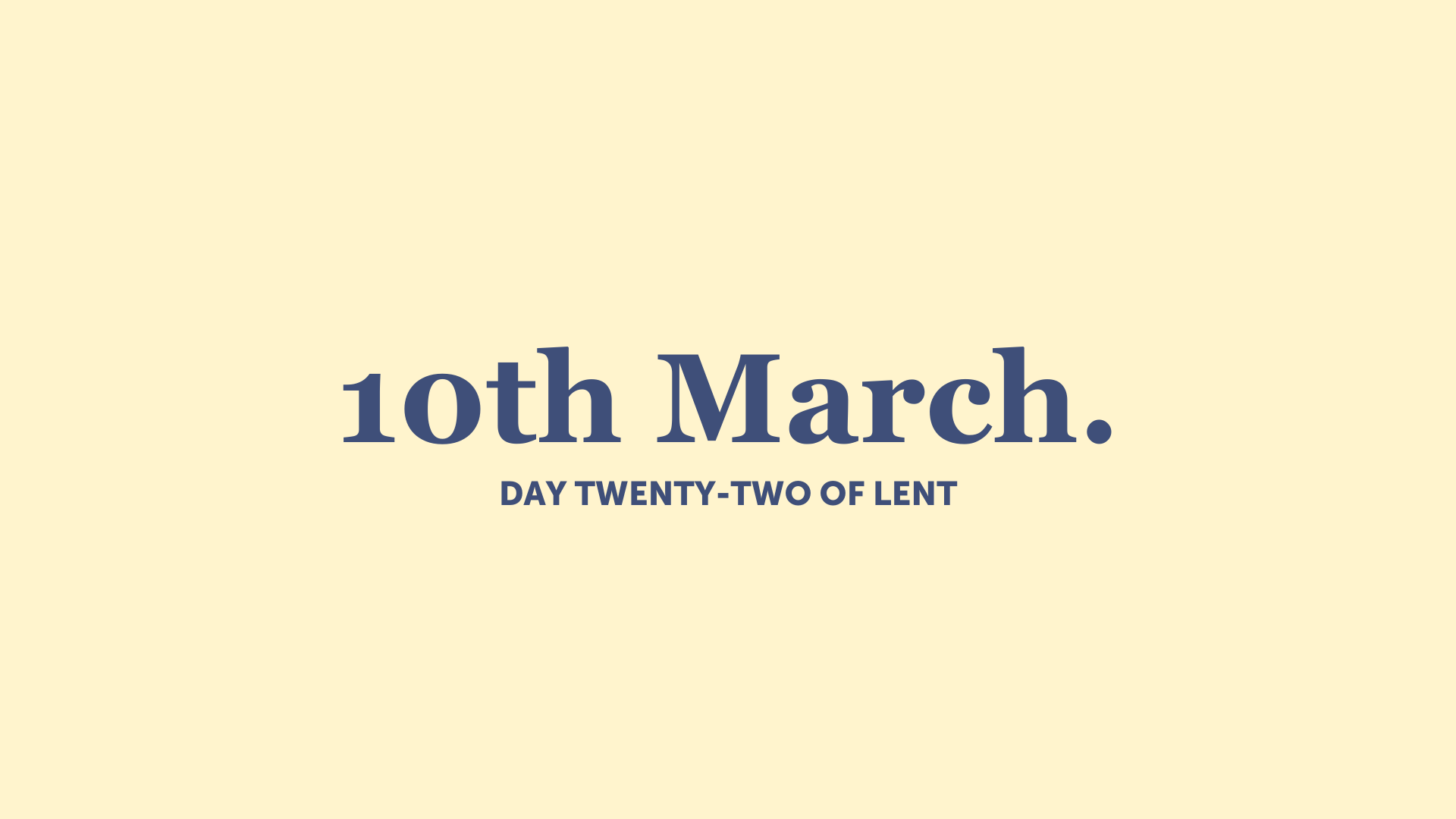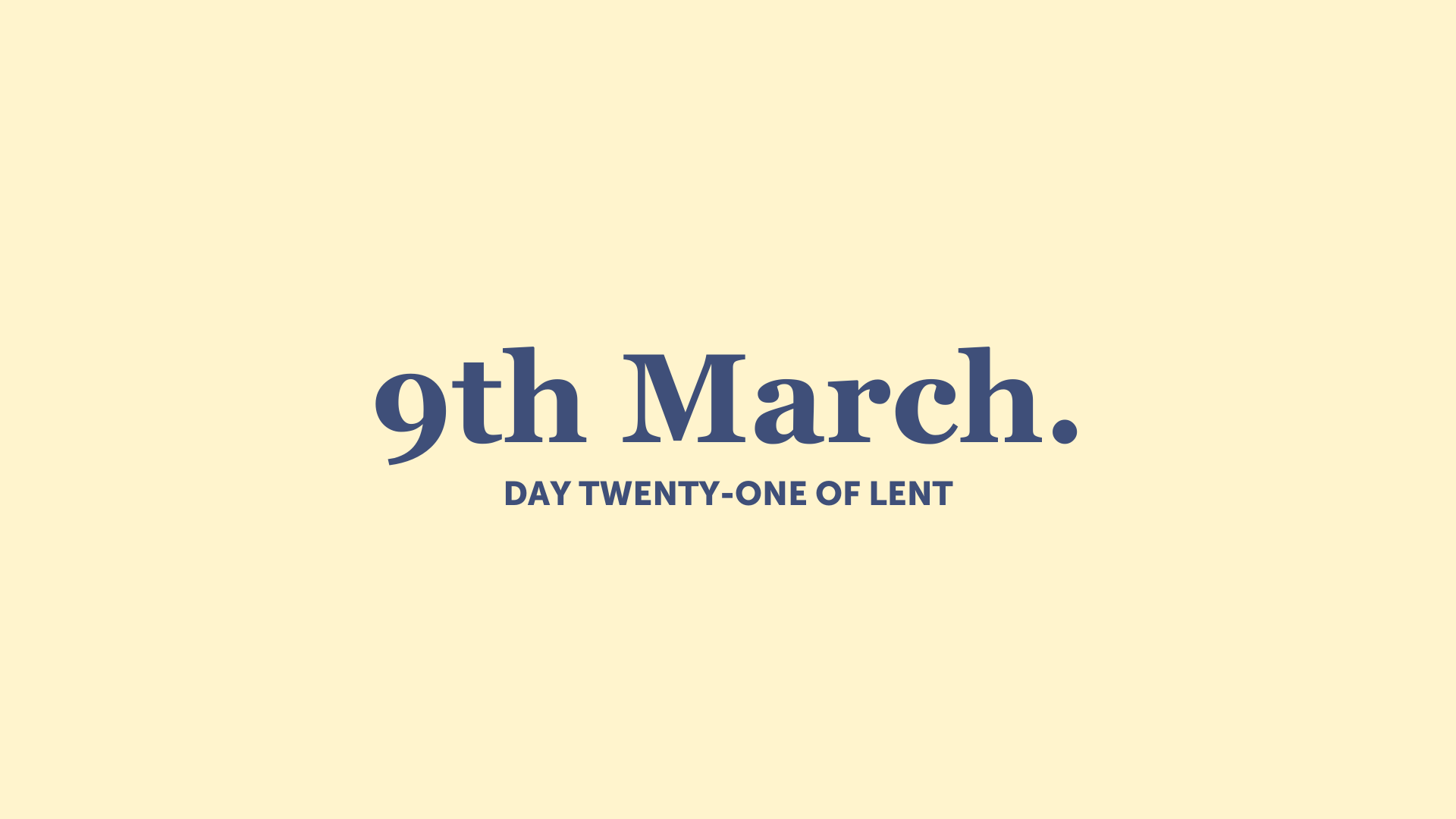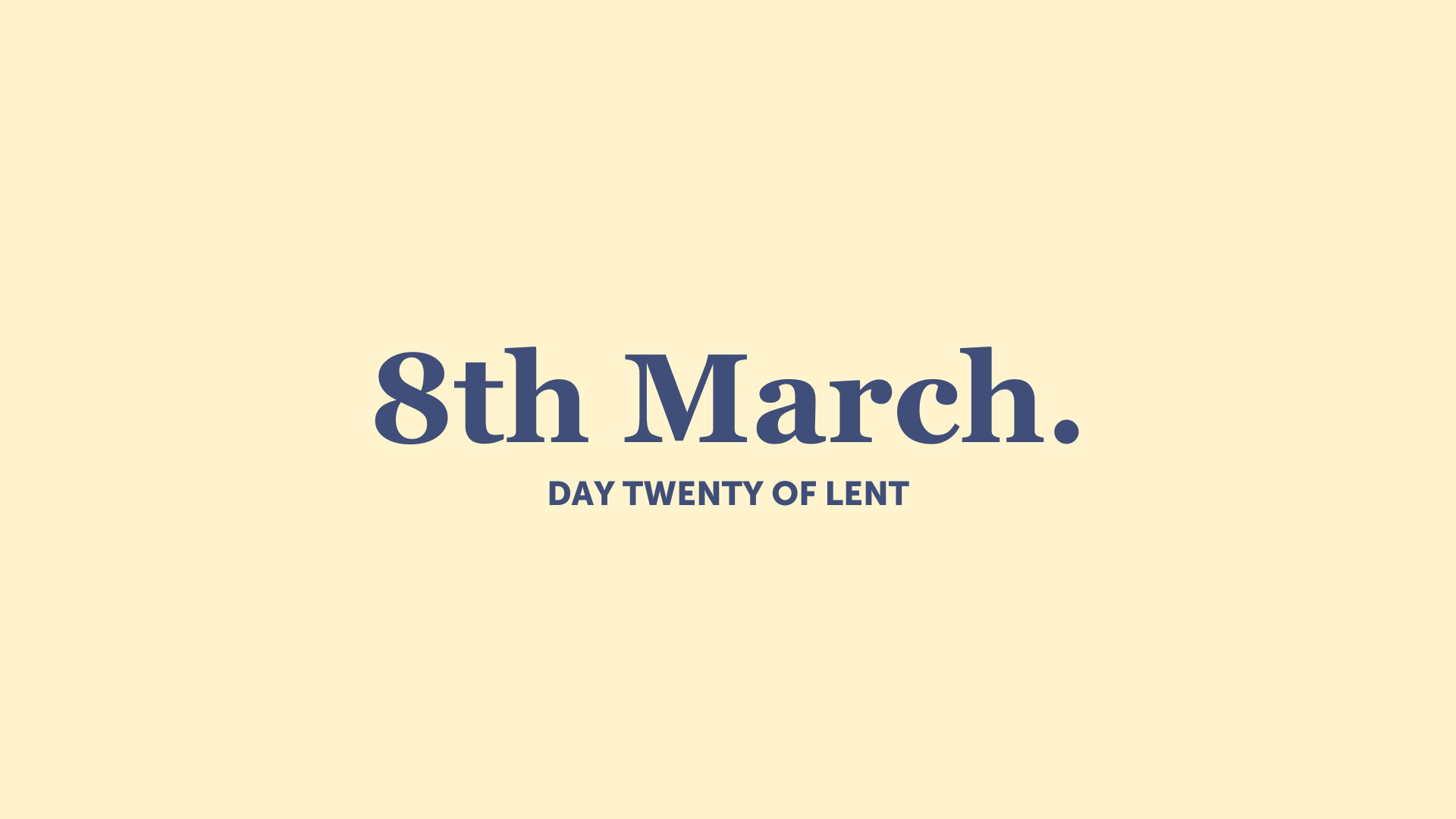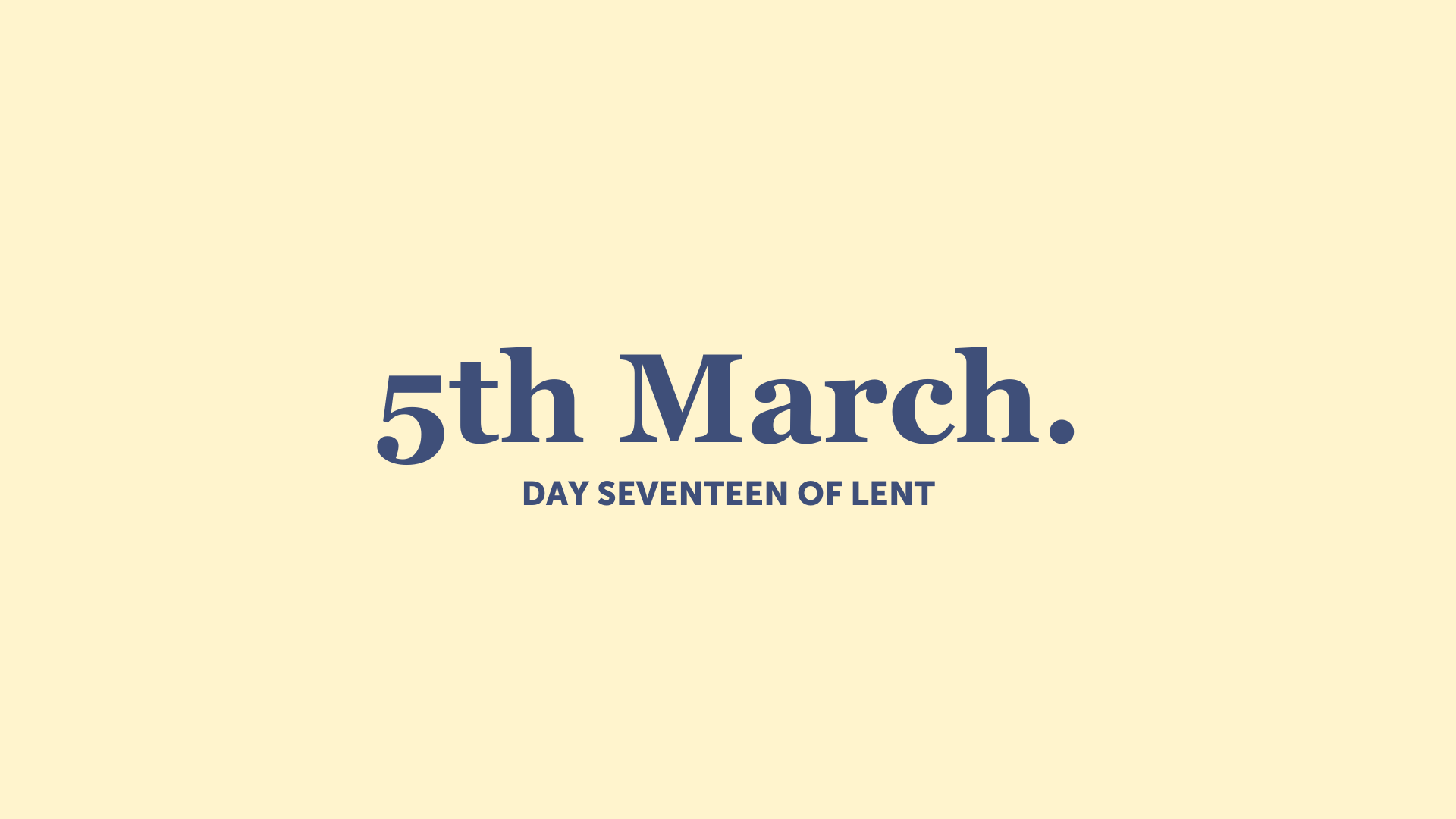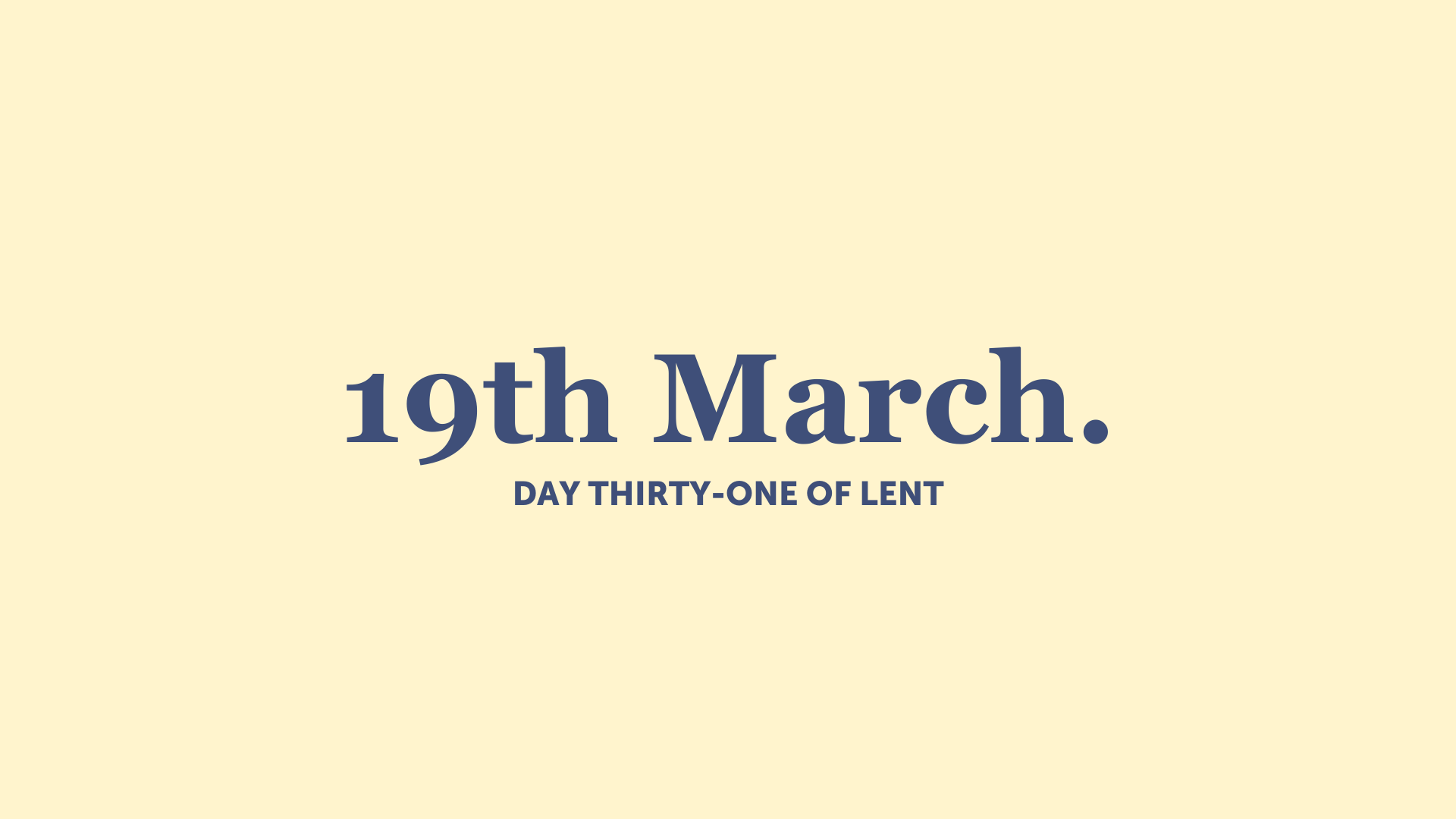

Psalm 23
Take a moment to be still and to pray ‘Come, Holy Spirit’ before reading the scriptures. If you are in the company of others, invite someone to read the text aloud.
If you are gathering with your family, invite someone to read this reflection aloud.
It was a car ride I will never forget.
We were sad and tired. Andrew was wrestling with grief as he had just led the service for his Granda’s funeral. A lockdown funeral. Like so many who have lost family during this pandemic, I was trying to keep at arm’s length the relentless feeling of disappointment that the family I love could not have the funeral they needed; the funeral that would’ve brought everyone so much closer to closure. We had just collected the kids from being minded. They were simmering with anger, not being allowed at the funeral, feeling excluded.
This heavy mixture of grief, disappointment, and anger filled every space around us like thick molasses. It felt hard for me to breathe. As if she had been reading my mind, my eight-year-old daughter asked for her window to be rolled down. Her father obliged. She closed her eyes, and leaned her head into the rushing air.
She took a deep breath.
Only that the rest of us were so quiet, we would not have heard it at first. A small bubble of something that in that moment felt so foreign and out of place. From somewhere far away, a little giggle rang like the tiniest of bells. Everything stopped as the sound, so fragile, so innocent, so other-worldly grew and transformed into a deep, guttural belly laugh. This was no ordinary laugh. This laugh felt like a protest; like an act of resistance. It demanded from the rest of us a response. Slowly, a little timidly at first, our own laughs began their ascent from our exhausted and defeated places.
Deep joy in the middle of deep sadness.
In Genesis 22, we find Abraham and his son walking up a mountain with the intent to build an altar. The only problem? There was no lamb for the sacrifice. When his very astute son asked where the sacrifice was for the altar they were going to build, Abraham said one thing: “God Himself will provide…”
I didn’t feel like Abraham the day I found myself standing in my kitchen, seething with rage and screaming at my children at the top of my lungs, “WE ARE A FAMILY OF PEACE AND LOVE!” But that was the day I admitted defeat. The day my confession rested on a heavy sigh: “Jesus, I don’t have this. I can’t do this.”
And much like my daughter’s giggle, the Spirit spoke; so very quietly: “Build an altar…”
Disbelief and doubt lead my charge, “Didn’t you hear me? I have no sacrifice. I have nothing to give. I’ve tried everything.”
“Build the altar, I’ll provide the sacrifice.”
Annoyance.
Exhaustion.
A sigh.
Right.
An altar.
As Jason Upton says: “Every table is an altar…”
My table. The place I used to entertain people from all walks of life and every corner of the globe. Abandoned during this last year, except for the slightly shouty, messy, and monotonous daily meal.
My table.
Ok. My altar will be my table.
Every Sunday, I build my altar. My 8 person, hand-me-down dining table. I lay my linen tablecloth and fold my linen napkins. I use the “good” cutlery and set out the wine glasses. I light the candles and turn on music as I prepare a roast chicken lunch. This altar is a confession: “Father, I feel spent; I don’t have all that life is requiring from me. But I know you do. I don’t know how it will come or what it will look like, but I have built my altar and I wait for you to provide the sacrifice.”
Some days, during my preparation, I sense that I am not alone. I am kept company by things that seek to crush me:
Fear that I’m not a good mother and wife.
Doubt that I can’t do my job well.
Anger that literally no one in my house knows how to load the dishwasher properly (and this obviously points to the logical conclusion that they all hate me and couldn’t care less if I was here or not—I’m not at all dramatic).
Those are the Sundays I need to build my altar the most.
“…He prepares a table before me in the presence of my enemies…”
And here, my friends, is the place where my miracle occurs: not the feast that happens when all is well. But the celebration that breaks out in the midst of a battle; the giggle that is born in the grip of fear; the table that is set and then filled in the presence of my enemies.
I’m no theologian, so I can’t tell you exactly how this works. My enemies have not disappeared, but somehow they seem weaker, less intimidating when I allow myself, in whatever state I am in, to sit at my table and eat from the feast the Father has provided.
Maybe, like me, you feel inadequate in the light of all life requires from you in this season. Maybe, you look at what you have and what you need and all you can see is ‘not enough’. Maybe you can’t remember the last time you weren’t exhausted or angry or afraid.
It’s time to build an altar.
It’s time to set the table.

Depending on which time of day you are practicing this office, you can use the morning or evening prayer. All to pray the following words aloud.
I bind unto myself today
The power of God to hold and lead,
His eye to watch, His might to stay,
His ear to hearken to my need,
The wisdom of my God to teach,
His hand to guide, His shield to ward;
The word of God to give me speech,
His heavenly host to be my guard.
Christ be with me, Christ within me,
Christ behind me, Christ before me,
Christ beside me, Christ to win me,
Christ to comfort and restore me,
Christ beneath me, Christ above me,
Christ in quiet, Christ in danger,
Christ in hearts of all that love me,
Christ in mouth of friend and stranger.
I bind unto myself the name,
The strong name of the Trinity;
By invocation of the same,
The three in One, and One in Three,
Of whom all nature hath creation;
Eternal Father, Spirit, Word:
Praise to the Lord of my salvation.
Salvation is of Christ the Lord.
Amen.
If you are gathering with your family, wait a moment and listen for the voice of God. Prayerfully share any words, pictures, encouragements or scriptures with each other by the laying on of hands.
Whether you are by yourself, or in the company of others, take time to pray for others that the Holy Spirit brings to mind, blessing them in His name.
Close your time by singing or saying aloud the Doxology.
“Fight back the dark with doxology. Doxology can detox the day.”
Ann Voskamp
Praise God, from whom all blessings flow;
Praise Him, all creatures here below;
Praise Him above, you heavenly host;
Praise Father, Son, and Holy Ghost!
Amen and Amen.
________



